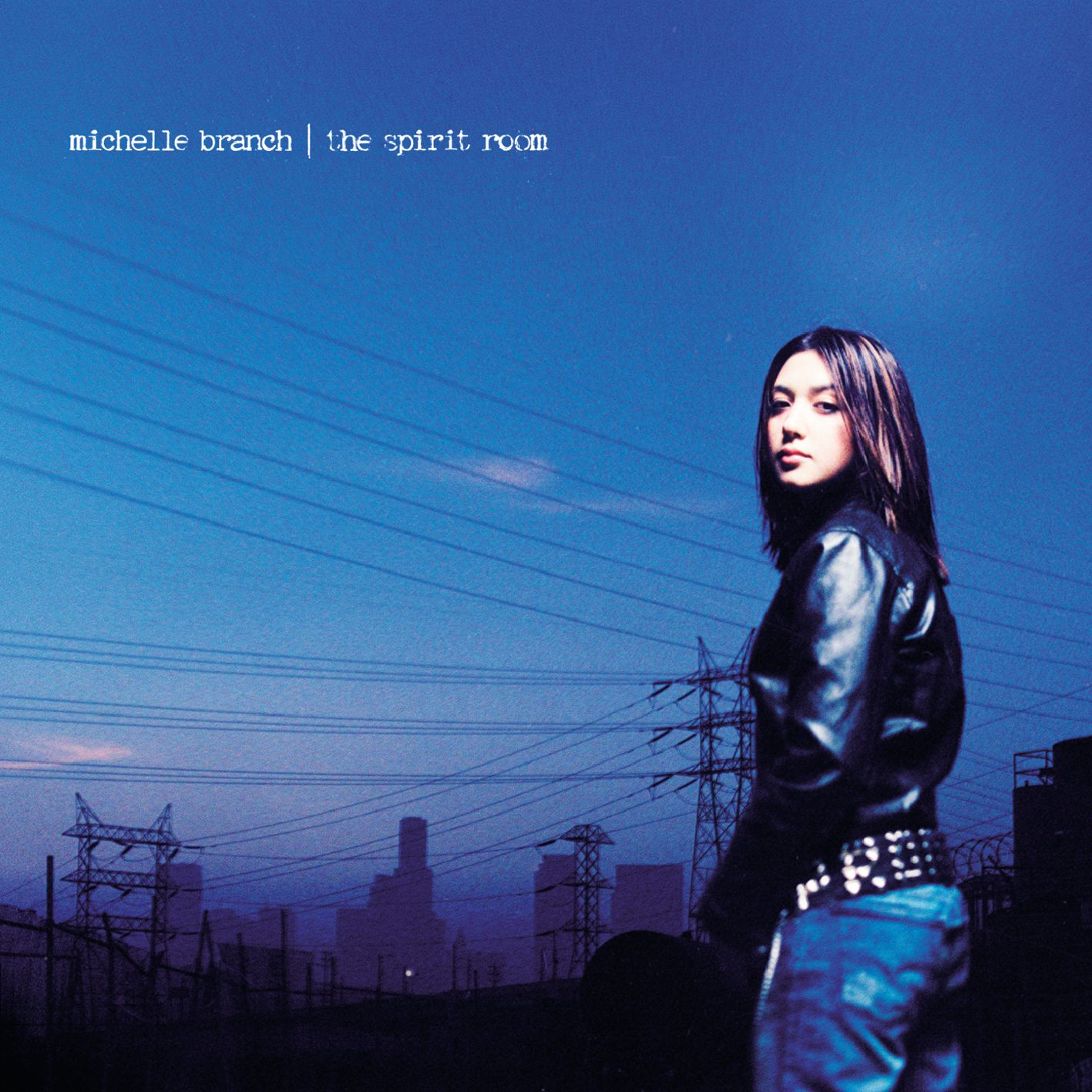- Maverick/Warner Bros.
- 2001
If you were coming of age in the early aughts, The Spirit Room likely soundtracked daydreams about your first kiss or car rides with your best friends. What you probably didn't realize back then is that the tracks from Michelle Branch's seminal debut would become a lasting part of your go-to karaoke list. In just an instant scream-singing the chorus to "Everywhere," you're transported back to your teenage years, thanks to its unbearably catchy and angsty lyrics. In 2021, the emotional core of The Spirit Room has yet to fade; the fact that Branch’s major-label debut remains beloved is a testament to her heartfelt songwriting prowess.
At the start of the 2000s, the music landscape was dominated by bubblegum pop artists like Britney Spears and boy bands like NSYNC and Backstreet Boys. But by 2001, the pop scene became more expansive — chart-topping hits came from R&B-tinged collaborations like "Lady Marmalade" from Christina Aguilera, Eve, P!nk, and Lil' Kim and hits like "Always On Time" from Ja Rule and Ashanti. Bombastic pop hits were replaced in favor of calmer, more emotive songs, while laid-back rock songs flooded the mainstream. The emergence of Branch, a blossoming, guitar-wielding singer-songwriter from Sedona, Arizona, was the beginning of a new age of pop -- one that focused on the craft of songwriting.
When Branch entered the scene, she recalled the confessional songwriting and authenticity of '90s alt-rockers Liz Phair, Sheryl Crow, and Fiona Apple. After releasing her album Broken Bracelet independently in 2000, Branch signed with Madonna's Maverick label at 17 just a year later. Everything would change when she released her hook-filled debut single "Everywhere" in the summer of 2001, an overdramatic anthem about heartbreak primed for future Swifties. Following her hit came her electric- and acoustic guitar-flanked debut studio album The Spirit Room, a project filled with the yearning and tenderness of a diary entry and the innocent idealism that exists only in your childhood bedroom.
Largely penned by Branch and co-produced by John Shanks, The Spirit Room would go double platinum. In addition to "Everywhere," the LP birthed two other singles: "All You Wanted," a blistering emotional escape, and "Goodbye To You," a somber power ballad about leaving a relationship behind. All three would enter the Top 40 on the Billboard Hot 100, catapulting Branch to national fame. While those three songs are likely tattooed into the minds of pop fans, the rest of the album was filled with breezy love songs that felt like a mythical daydream and heartbreak anthems that could have fooled you into thinking they were, too. Sure, "Everywhere" had an arena-style hook that made it radio-friendly, but the remainder of the record leaned into a dreamier, folk-like ethos that resonated with fans regardless.
On The Spirit Room, Branch seamlessly pivots from the sugary string-filled love song "You Get Me" to "You Set Me Free," which features a kaleidoscopic chorus about the strength discovered from a new relationship. "'Cause I wanted to fly, so you gave me your wings," she sings with a carefree lilt. "Something To Sleep To" sees Branch wistfully recalling a dysfunctional relationship she saw through rose-colored glasses with a lullaby-like melody, while "Here With Me" flaunts her theatrics over losing love: "I know you had to go away/ I died just a little/ And I feel that now you're the one I need." What signaled a future fluidity in Branch's craft was the album’s closer "Drop In The Ocean," a sparse, atmospheric stream of consciousness.
Most significantly, with The Spirit Room, Branch not only crafted the perfect soundscape for her own romances but for teen soaps, as well. As her songs charted on Total Request Live's weekly countdowns, they also played in the backgrounds of TV shows like Dawson's Creek, Everwood, and Charmed. Furthermore, Branch and her country duo with Jessica Harp -- the Wreckers -- garnered attention from the One Tree Hill soundtrack and its subsequent US tour full of the show's cast members and musical guests.
In a broader sense, Branch's debut helped pioneer the success of a cohort of young women who would also dominate and redefine pop music like Vanessa Carlton, Ashlee Simpson, and Avril Lavigne. And her influence has reverberated throughout generations, inspiring singer-songwriters to pick up the guitar and pen songs, including everyone from Taylor Swift and Hayley Williams to Soccer Mommy. In 2021, it's not a stretch to see the songwriting parallels in one of the biggest songs of 2021: Olivia Rodrigo's breakup banger "good 4 u."
Since the release of The Spirit Room, Branch weathered a series of ups and downs. While her debut had inklings of folk-country influences in it, Branch would harness them more fully in the Wreckers and her 2010 EP Everything Comes And Goes, which was intended to be a full-length record. She'd also endure a label battle that would cause her to contemplate quitting music. Finally, 14 years after the release of her second studio album Hotel Paper, she would make her long-awaited return to music with her 2017 album Hopeless Romantic. While the record was infused with moodier blues-rock -- a combination of her growth as an artist and the evolving relationship with her husband and collaborator Patrick Carney of the Black Keys -- what's remained a constant is Branch's flair for truth-telling and starry-eyed lyrics. It's why after all these years we're endeared to her, and why Branch's influence truly remains everywhere.






